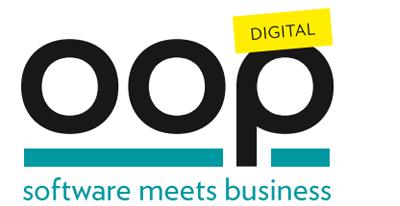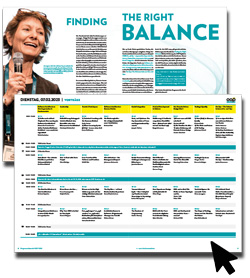Das gesamte Konferenzprogramm auf einem Blick? Kein Problem, alle Programminhalte finden Sie hier jetzt auch als praktische PDF-Broschüre ganz bequem zum durchscrollen, downloaden oder ausdrucken:
Zur PDF-Broschüre
Track: SUSTAIN_ability – Responsible Steps into the Future
- Mittwoch
08.02. - Donnerstag
09.02.
There are many discussions, slogans, and myths out there when it comes to sustainability. But what is behind all those slogans? What does “carbon neutral” really mean and how does it compare to “net-zero”? Is my cloud really running on renewable energy? What are the low-hanging fruits when it comes to reducing carbon emissions? And how does “carbon offsetting” really work?
This session explains all those slogans and concepts, sheds some light at common myths, and provides the audience with a…
The topic of Green Software is very important because software is everywhere and affects the environment indirectly through the usage of hardware. Jochen Joswig explains what Green Software means and more detailed how energy demand can rise through software usage. There are different degrees of software effects on the environment that can be considered and evaluated. Jochen Joswig is furthermore researching green software metrics, approaches, quality criteria and how they can be applied in the…
Over 95 % of companies in the EU are small businesses with less than 250 employees. Many of them would like to reduce their carbon emissions but very few have the knowledge and time needed to take action.
Reaching a sizable fraction of these companies with actionable information about their carbon footprint has a huge potential for climate impact. But is that possible for an organization with less than 10 employees? While also working at a sustainable pace?
Target Audience: Everybody willing to…
Die Klimakrise ist da. Digitalisierung verändert unsere Welt mit einer Geschwindigkeit, die wir noch immer nicht begreifen. Unsere digitale Welt hat einen riesigen Fußabdruck, der uns gar nicht bewusst ist. Gleichzeitig lassen sich 13 der 17 SDG der UN ohne (digitale) Technologie gar nicht umsetzen.
In unserem Podcast "Software for Future" befragen wir Expert:innen aus allen Branchen zu der Frage: Wie können wir mit Digitalisierung die Welt retten, ohne mit Digitalisierung die Welt zu…
Zur Implementierung einer gemeinsamen Strategie orientieren wir uns in Unternehmen oft an OKRs und KPIs. Bisher wurde jedoch nicht viel getan, um zu messen, wo wir auf unserem Weg zu mehr Nachhaltigkeit stehen und/oder wie wir vorankommen.
In diesem (interaktiven) Vortrag gebe ich einen Überblick darüber, wie man einerseits den Status quo bezüglich Nachhaltigkeit eines agilen Teams oder Unternehmens herausfinden kann und andererseits, wie man diesen dann zur Definition der nächsten Schritte…
Die IT ist verschwenderisch, das Einsparpotenzial entsprechend hoch. Die Wertschöpfungsketten von IT-Unternehmen und IT-Abteilungen offenbaren eine Vielzahl von Aspekten, die verschiedenste Nachhaltigkeitsziele berühren. Die methodische Betrachtung und Wirkungsanalyse einer exemplarischen IT-Wertschöpfung im Kontext der 17 Nachhaltigkeitsziele der UN führte uns zur Entwicklung des Sustainability-Thinking-Process - auf Basis von Design Thinking. Der Vortrag stellt das Vorgehensmodell, unsere…
Java applications are widely used and often several years old. You can use these applications in the cloud via lift-and-shift (helps nothing) or you can rewrite the application in cloud-native style and use the advantages of the cloud.
An alternative for existing applications is missing here. It must be possible to go to the cloud and use advantages such as serverless and scale-to-zero WITHOUT having to rewrite the entire application.
I will show what is already working well today and where the…
Sustainability has become a huge topic. And software is eating the world. As a consequence, we are responsible for the growing ecological impact of the solutions we create.
In this session, we will discuss several sustainability patterns, ranging from the infrastructure level over design and development to requirements and processes that support us in reducing our carbon footprint - including trade-offs and tips for implementation.
After this session you will have a little toolbox for creating…
Climate action and green software engineering has risen to the top of many technology companies' agenda. With accuracy hungry algorithms ML software is consuming more and more computational resources, largely benefiting from the increasingly better hardware. Are the results worth the environmental cost?
This talk introduces the field of green software engineering, showing options to estimate the carbon footprint and discuss ideas on how to make Machine Learning greener, giving you the tools to…


